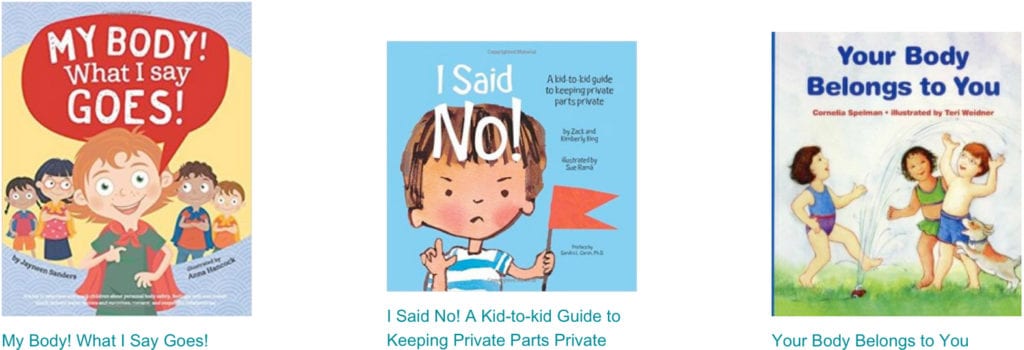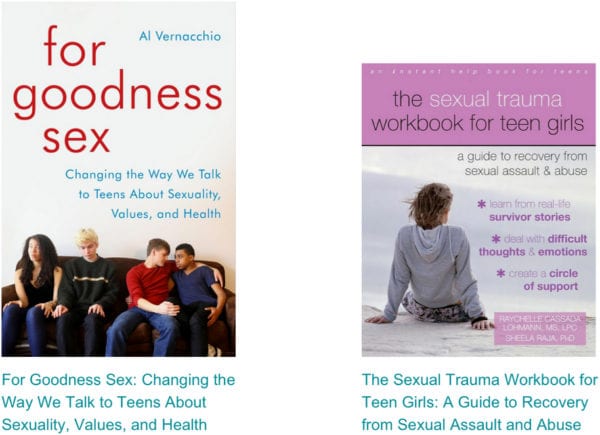What is Consent?
Consent can be a confusing topic to many young people, especially when it is used in the context of sexual relationships.
Simply put, consent is giving permission for something to happen, or agreeing to do something.
Why Teach Consent?
Communication, respect, and honesty are the building blocks of healthy relationships, and consent is about all of those things. Teaching kids about the skills of consent can help reduce sexual coercion, harassment, and even assault.
By teaching kids about consent, we:
- Help them learn how to express what they want and don't want.
- Give them tools to express their limits.
- Teach them that they deserve to be treated in a respectful way.
- It also means teaching kids that it's just as important to respect others' limits and wishes.
- Teach them that their friends have a right to say "no" and "yes and have that be respected.
When to Teach Consent?
Consent should begin at a very young age as it has as much to do with setting personal boundaries — for yourself and others — as it does with preventing sexual assault. Explaining consent to small children has little to do with sex, although it does help prevent sexual assault as well as giving children a voice if they are threatened by or actually assaulted at any age.
Learning consent for small children means if you are tickling your best friend and she says to stop then you stop — even though you personally think tickles are the best. Consent means that when you're wrestling with your friend and you can tell he doesn't want to anymore, you stop — even if you love rough-housing and could wrestle forever.
Overview
Children are very observant and impressionable. It is imperative to practice consent in your own interpersonal relationships. If boundaries and rules for consent have been established, follow them yourself as an example to your children. Model appropriate ways to interact with others. Kids watch adults to see how to act appropriately.
Thought sit down conversations are necessary, they are not the only way to teach children consent. Keep in mind the following:
- Teach kids how to give and receive consent.
- Teach kids that they can change their mind about given consent at any given time. Whether they have consented to prior physical contact with this individual or in the middle of an interaction.
- Discuss the importance of no as well nonverbal cues.
- Teach kids about asking for permission rather than forgiveness — "Is it okay if I..."
- Remain open in these conversations to foster an environment where your child can feel comfortable discussing this topic as situations arise.
- IT is never too early or too late to start teaching consent.
Teaching Child Consent
Preschool Children (1-5 years old)
- Have children ask permission before physical contact with others, saying things like "let's ask Bobby if he would like to hug goodbye". If the child responds "no", honor the response or offer other options like a wave goodbye.
- Emphasize and create empathy. Correct hitting behaviors without shaming or embarrassing the child.
- Honoring "no" and "Stop" are also important in this process.
- Never force a child to hug or kiss anybody, family member or otherwise.
- Create space for children to talk about their body and encourage children to wash their own genitals. Explain the importance of cleanliness and ask to help during bath time — "Can I wash....?"
- Talk about instincts and label emotions. Be open about emotions so that children do not feel shame around them and explain that sometimes the gut feeling is right.
- Encourage children to use their words instead of tantrums.
School-aged Children (5-12 year olds)
- Discuss body changes regularly as this can be a confusing time for children. Eliminate shame or embarrassment a child may experience around the topic by being willing to talk openly.
- Remind your child that these changes are normal and natural.
- Don't tease children about friendship with the opposite sex or crushes.
- Explain how their behaviors affect others and have consequences.
Books For Children

Teaching Teenagers Consent
Teaching Consent for 13-18 year olds:
- At this age, education on good touches versus base touches can be crucial as various games come into play. Talk about the impact of playful games and how they may be received and/or affect the other party involved.
- Build self-esteem, self-compassion, and self-worth, and promote body positivity.
- Have continual “sex talks” with middle schoolers (6th to 8th grade). This should be an ongoing conversation.
- Discuss changing hormones as a part of growing up. Hormones may alter feelings and that can be overwhelming for teens. Make it known that this is common and okay.
- Keep the conversation going even into young adulthood as these situations do not go away when they when they go away to college or enter the workplace.
Books For Teenagers


